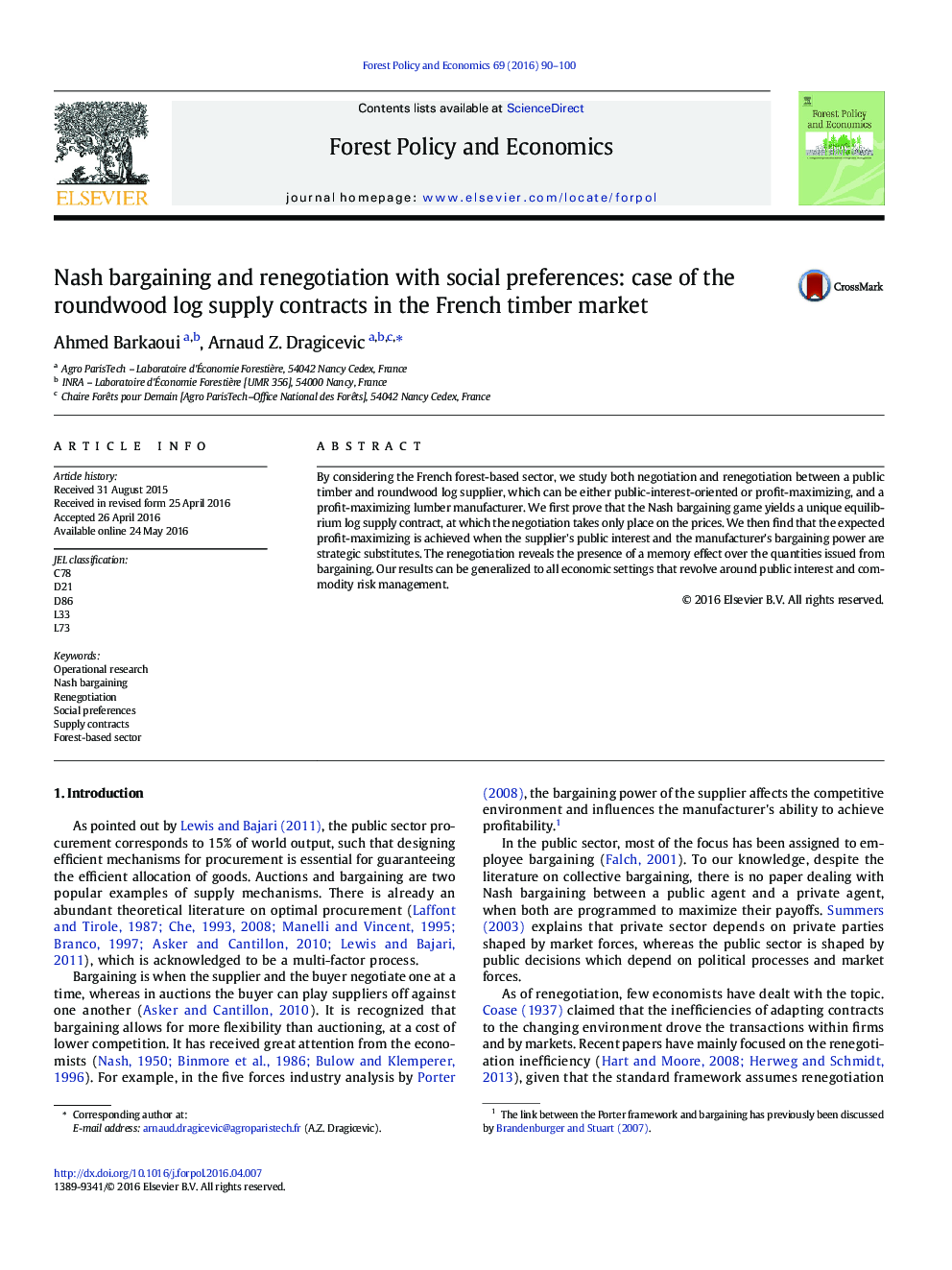| Article ID | Journal | Published Year | Pages | File Type |
|---|---|---|---|---|
| 91245 | Forest Policy and Economics | 2016 | 11 Pages |
•A timber and log public supplier and a lumber manufacturer negotiate a roundwood log supply contract.•While the lumber manufacturer is a profit-maximizing agent, the timber and log public supplier can be either public-interest-oriented or profit-maximizing.•The unique equilibrium log supply contract only involves the price negotiation.•The supplier's public interest and the manufacturer's bargaining power work as strategic substitutes.•The renegotiation reveals a memory effect over the quantities issued from bargaining.
By considering the French forest-based sector, we study both negotiation and renegotiation between a public timber and roundwood log supplier, which can be either public-interest-oriented or profit-maximizing, and a profit-maximizing lumber manufacturer. We first prove that the Nash bargaining game yields a unique equilibrium log supply contract, at which the negotiation takes only place on the prices. We then find that the expected profit-maximizing is achieved when the supplier's public interest and the manufacturer's bargaining power are strategic substitutes. The renegotiation reveals the presence of a memory effect over the quantities issued from bargaining. Our results can be generalized to all economic settings that revolve around public interest and commodity risk management.
